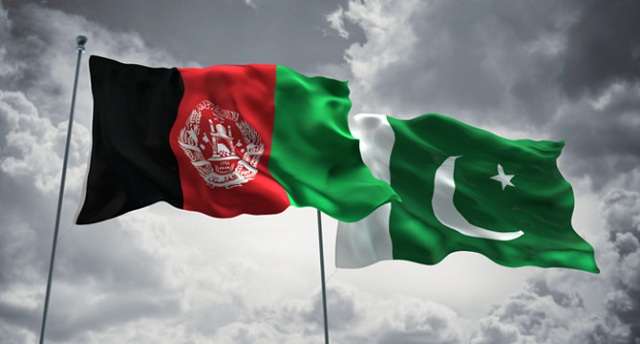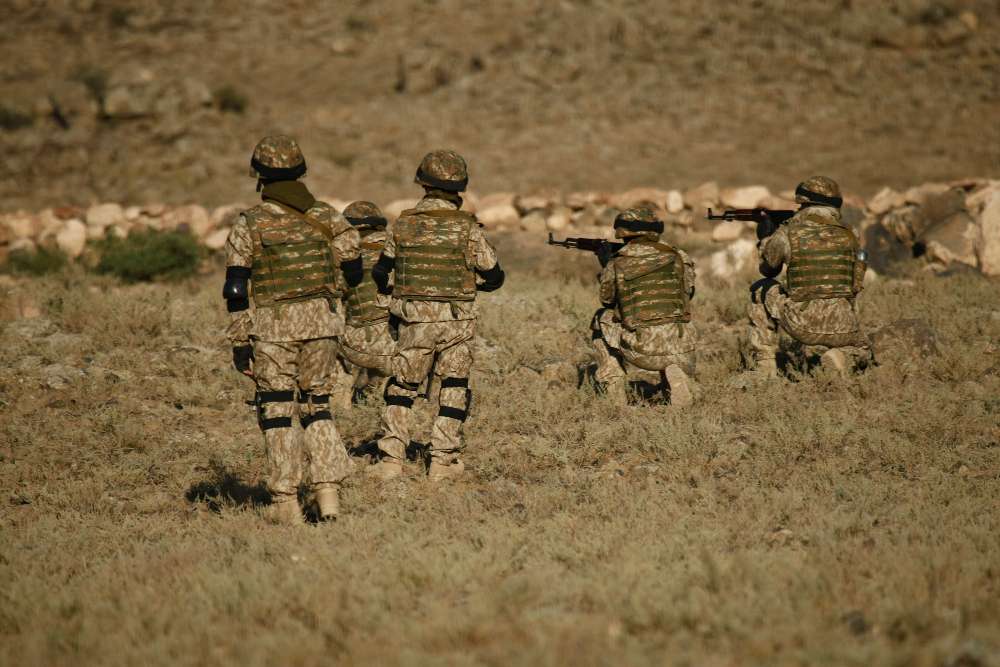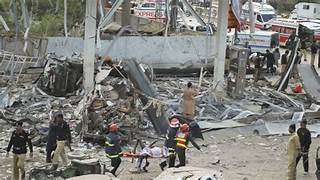Introduction
A new phase of dialogue between Pakistan and Afghanistan has once again brought regional security into focus. After weeks of border clashes and diplomatic strain, both nations have agreed to create a joint monitoring and verification mechanism — a structured system to investigate and prevent cross-border terrorism.
Pakistan’s Information Minister, Attaullah Tarar, has declared that the “onus is now on Kabul” to take decisive action against terrorist groups using Afghan territory to target Pakistan. The move marks a significant shift in responsibility, suggesting Islamabad’s growing frustration over recurring cross-border attacks and Afghanistan’s alleged inaction.
Background of the Conflict
Tensions between Pakistan and Afghanistan have been mounting for months. The latest escalation began in early October when Pakistan reported a series of deadly attacks launched from Afghan soil.
Islamabad has long accused the Tehreek-e-Taliban Pakistan (TTP) — a banned militant organization — of operating freely in Afghanistan since the Taliban took control of Kabul in 2021. Afghan authorities, however, deny these allegations, claiming that the attacks are carried out by groups beyond their control.
The situation deteriorated further after an attack on October 11, allegedly originating from Afghanistan. In response, Pakistan reportedly conducted precision strikes on militant hideouts across the border — an action neither confirmed nor denied by Islamabad. This triggered harsh accusations from the Afghan Taliban, who claimed Pakistan violated Afghan sovereignty.
As hostilities grew, diplomatic efforts led by Turkiye and Qatar brought both sides back to the table, first in Doha and later in Istanbul, where the current peace framework took shape.
The Istanbul Understanding
The Istanbul round of talks, which began on October 25, came after a failed round of dialogue days earlier. Pakistan had announced that its negotiators were preparing to leave after no progress was made, calling the talks “unsuccessful.” However, behind-the-scenes diplomacy by Turkiye and Qatar helped salvage the process.
This renewed effort produced a three-point understanding:
- Continuation of the ceasefire between the two countries.
- Creation of a monitoring and verification mechanism to prevent and investigate violations.
- Introduction of penalties for any breaches of the agreement.
Operational details are expected to be finalized in the next meeting on November 6 in Istanbul, where senior representatives — referred to as “principals” — will discuss practical enforcement.
Pakistan’s Position: Accountability for Kabul
In a televised interview on Geo News’ programme “Naya Pakistan”, Information Minister Attaullah Tarar emphasized that the newly agreed framework places direct responsibility on the Afghan authorities to control militant activity emanating from their soil.
“The onus is on the Afghan regime because their soil is being used for terrorism in Pakistan by Fitna-al-Khawarij and Fitna-al-Hindustan,” Tarar said.
He explained that Pakistan will use the mechanism as a platform to provide evidence against terror groups operating from Afghanistan. Once proof is presented, Kabul will be expected to take action. If the Afghan Taliban government fails to act, Tarar warned, “they will receive punishment.”
The minister further stated that the system would make it impossible for the Afghan administration to deny responsibility, as third-party states — Turkiye and Qatar — will help oversee the process.
Understanding the Terms: Fitna-al-Khawarij and Fitna-al-Hindustan
In recent years, Pakistani security agencies have adopted two key designations for terrorist threats:
- Fitna-al-Khawarij refers to militants associated with the Tehreek-e-Taliban Pakistan (TTP) and similar extremist outfits.
- Fitna-al-Hindustan is used for Balochistan-based groups allegedly supported by India to destabilize Pakistan.
By framing the issue this way, Pakistan has tried to highlight what it views as a dual threat: one from religious extremism and the other from foreign interference.
Will Pakistan Strike Targets in Afghanistan Again?
When asked whether Pakistan would respond militarily to future attacks, Tarar gave a cautious yet firm response.
He said any action would depend on the severity of the situation and would remain within the bounds of international law and the UN Charter. The newly formed monitoring body, he added, is designed to handle such matters through evidence and verification rather than retaliation.
“Once the mechanism is established, and evidence is verified, any party violating the agreement will be punished,” Tarar stated. “Now the Afghan Taliban have no room to make excuses.”
Controversy Over Terror Suspect Handover
One of the more contentious issues in the ongoing talks is the handover of suspected terrorists. Afghanistan reportedly offered to hand over certain individuals accused of attacking Pakistan. However, Islamabad rejected the offer, insisting that Kabul should first prevent such groups from operating within its territory.
Tarar questioned the Afghan administration’s motives behind making such statements after the talks.
“Pakistan’s stance is clear — any terrorists threatening our security should be controlled or arrested,” he said. “These new claims are twisting facts.”
He also revealed that Pakistan had previously suggested a formal handover process through border posts, which remains part of its long-term position.
A Fractured Afghan Government
In one of his most pointed remarks, Tarar described the Afghan Taliban government as a “fractured regime” lacking full control over its territory.
According to him, the administration in Kabul comprises multiple factions, some of which operate independently. This fragmentation, he said, prevents the Taliban from enforcing unified decisions and has allowed terrorist networks to persist.
Tarar reiterated that Pakistan’s civilian and military leadership are united in their position and warned the Afghan side against spreading propaganda.
Border Skirmishes and Rising Casualties
The border between Pakistan and Afghanistan, particularly along the Durand Line, has long been a flashpoint. The recent escalation resulted in multiple skirmishes, leaving casualties on both sides.
Pakistan’s security forces have conducted several intelligence-based operations (IBOs) targeting militant hideouts within its territory. However, officials say that many attackers continue to receive sanctuary and support from across the border.
The Gul Bahadur group, reportedly based in eastern Afghanistan, has been a key target of Pakistan’s counter-terror strikes. Islamabad maintains that it acts in self-defense when credible intelligence points to imminent threats.
The Role of Turkiye and Qatar
The involvement of Turkiye and Qatar has proven vital in maintaining dialogue between the two neighboring countries. Both nations have close diplomatic and security ties with Pakistan.
Qatar, in particular, has extensive experience mediating with the Afghan Taliban, having hosted several rounds of talks between the group and NATO representatives before the U.S. withdrawal in 2021.
Their current role underscores the importance of regional cooperation in managing peace and stability in South Asia.
Expert Opinions and Regional Impact
Analysts believe that the new verification mechanism could mark a turning point — but only if both sides honor their commitments.
Security expert Dr. Hassan Askari Rizvi notes that Pakistan’s insistence on third-party verification is aimed at ending years of “he said, she said” disputes. “It provides a structured way to prove cross-border involvement without relying on rhetoric,” he said.
However, others remain skeptical. Afghan political analyst Habibullah Noor told a local outlet that the Taliban’s internal divisions make enforcement difficult. “Even if Kabul agrees, not all factions will comply,” he warned.
If implemented effectively, the mechanism could also reduce tensions that threaten regional trade routes, energy corridors, and border communities that have suffered from instability for decades.
Conclusion: A Cautious Hope for Stability
While the Istanbul understanding offers a roadmap toward peace, both countries face a long journey ahead. Pakistan’s message is clear — responsibility now lies with Kabul to ensure that Afghan soil is not used against its neighbors.
For Afghanistan, compliance with the mechanism will be a test of governance and credibility. For Pakistan, it will determine whether diplomacy can finally achieve what military operations have not: lasting peace along one of the world’s most volatile borders.
As the two sides prepare for the next meeting in Istanbul on November 6, the world watches closely — hoping that dialogue, not conflict, defines the next chapter in Pakistan-Afghanistan relations.
For more in-depth coverage on Pakistan-Afghanistan border talks, regional peace efforts, and South Asian diplomacy, visit our Trending News Section and never miss an update.




